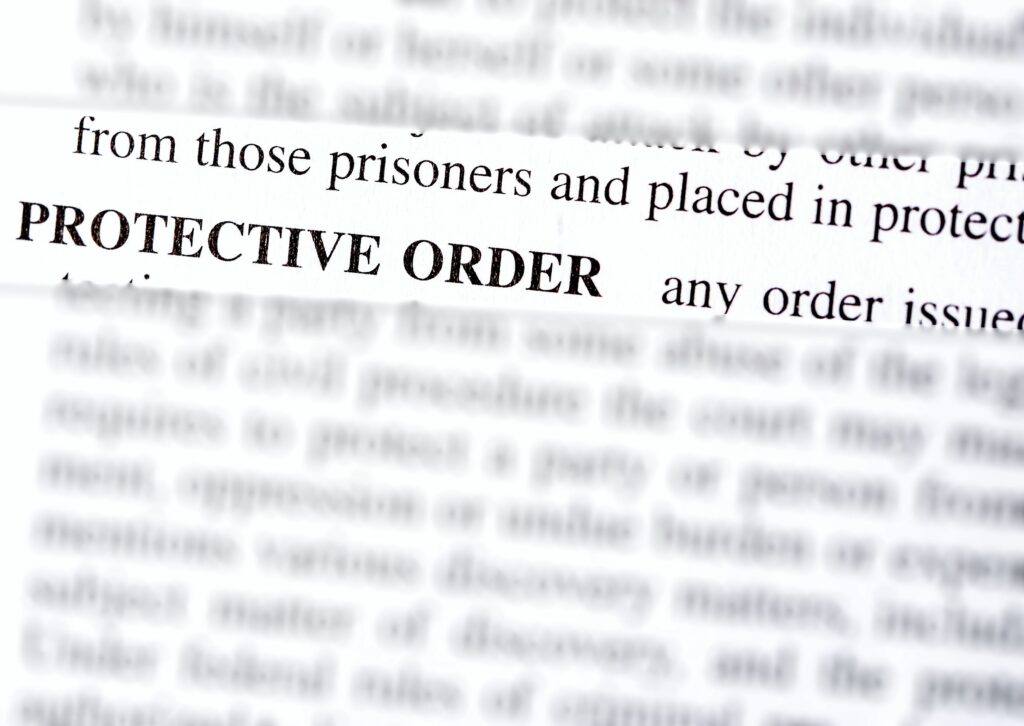Being accused of domestic violence is a serious matter in Colorado, and it often comes with immediate legal consequences beyond the criminal charge. One of the most significant is the issuance of a protective order, commonly called a restraining order. These orders are designed to protect the alleged victim, but for defendants, they can also impose severe restrictions that affect where you live, who you can contact, and even your ability to see your family.
Navigating the complexities of a protective order while fighting domestic violence charges can be overwhelming. At the Law Office of Richard B. Huttner, we understand the challenges you’re facing and are here to help you protect your rights, reputation, and future.
What Are Protective Orders in Colorado?
Protective orders, or restraining orders, are legal directives issued by the court to protect an alleged victim from harm. Under Colorado law, a protective order is mandatory in domestic violence cases from the moment charges are filed.
These orders often include strict conditions that defendants must follow, such as:
- No Contact: Defendants are prohibited from any form of direct or indirect contact with the alleged victim, including phone calls, text messages, emails, and social media interactions.
- Exclusion from Shared Spaces: If you share a residence with the alleged victim, you may be required to vacate the property immediately and find alternative housing.
- Prohibition of Firearm Possession: Colorado law mandates that anyone subject to a protective order must surrender all firearms and refrain from purchasing new ones during the order’s duration.
Failure to comply with these conditions can lead to additional criminal charges, even if the underlying domestic violence case is still being resolved.
Types of Protective Orders in Domestic Violence Cases
Colorado courts may issue different types of protective orders depending on the specifics of the case. Understanding the distinctions is crucial for defendants. Types of protective orders:
- Mandatory Protection Order (MPO): An MPO is automatically issued in criminal domestic violence cases. It remains in effect throughout the legal process—from the time of your first court appearance until the case concludes.
- Temporary Protection Order (TPO): A temporary protection order is typically issued quickly after allegations are made. These can last for up to 14 days but may be extended or converted into a permanent protection order.
- Permanent Protection Order (PPO): If the court determines that ongoing protection is necessary, a permanent protection order may be issued. While it is labeled “permanent,” defendants can request a modification or dismissal of the order with proper legal guidance.
How Protective Orders Impact Defendants
Protective orders create significant challenges for the accused, particularly when they are used in domestic violence cases. Here are some of the common ways such orders affect defendants:
- Interruption of Family Life: Protective orders may prevent you from contacting family members, including your spouse or children, even if those relationships are critical to your personal well-being.
- Housing Disruption: If the alleged victim lives in the same home as you, you may be forced to leave immediately, creating financial strain or difficulty finding alternative housing.
- Career and Licensing Issues: Protective orders tied to domestic violence accusations may impact your career, particularly if you hold positions requiring security clearance, firearm access, or professional licensing.
- Public Stigma: The existence of a protective order can damage your reputation among colleagues, friends, and family. The allegations alone may lead others to judge or distance themselves, even before the case is resolved.
Understanding these implications underscores the importance of securing experienced legal representation if you’re facing a protective order in Colorado.
Can Protective Orders Be Challenged?
Yes, protective orders can be contested or modified, but doing so requires a strategic approach. With the help of a knowledgeable criminal defense lawyer, you may be able to present evidence, argue for less restrictive terms, or even have the order dismissed entirely.
How a lawyer can help:
- Challenge False Claims: Protective orders are based on the allegations made by the accuser. If those claims are false or exaggerated, a defense lawyer can work to prove inconsistencies and have the order dismissed.
- Seek Modifications: A lawyer can petition the court to modify restrictive terms, such as allowing limited contact for purposes like co-parenting or resolving property disputes.
- Advocate Against Permanent Orders: If the accuser requests a permanent protection order, your attorney can present evidence and arguments to prevent the order from being issued.
It’s essential to remember that violating a protective order is a criminal offense. Even if the alleged victim consents to contact, the order still stands, and you could face additional charges for noncompliance. Having a defense lawyer guide you through this process ensures that you remain compliant while building a strong defense.
Contact A Denver Criminal Defense Attorney for Skilled Representation
If you are facing a protective order in connection to domestic violence accusations, don’t wait to seek legal help. The situation may feel overwhelming, but with the right knowledge and representation, you can take the steps necessary to protect your future.
At The Law Office of Richard B. Huttner, we are committed to standing by your side and ensuring your rights are upheld. Whether you need to contest a protective order, modify its terms, or defend against domestic violence charges, we are here to help.
Contact us to schedule a free consultation. We’ll evaluate the details of your case, explain your legal options, and work to achieve the best possible outcome. With our dedicated legal support, you gain the tools and guidance needed to move forward with confidence.



